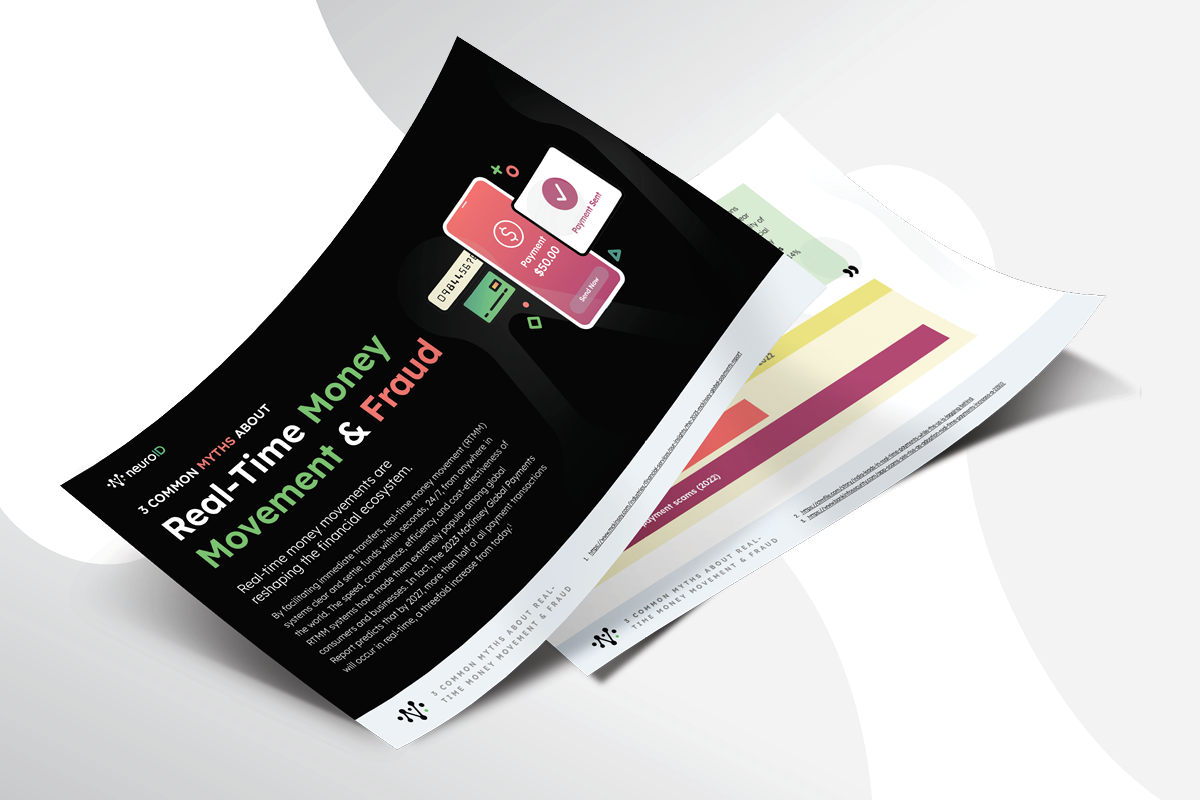
3 Common Myths About Real-Time Money Movement & Fraud
The danger of fraud has held many financial institutions back from committing to real-time money movement systems, but now the danger of indecision is just as harmful. We break down three common myths so you can confidently take on the risks of RTMM.
Real-Time Money Movements are Reshaping the Financial Ecosystem
Fraud professionals are facing a critical tipping point with the rise of the real-time money movement (RTMM) and its associated fraud risks. With their consumer-friendly, instant, cashless, and mobile-first real-time payment options, RTMM systems are not a trend—they’re a game-changer. The benefits aren’t all for consumers, either; RTMM systems provide FIs with better cash flow management, reduced settlement risk, and streamlined operations. This evolution benefits everyone . . . including fraudsters.
This fast-paced money movement has led to fast-changing “facts” about RTMM. In NeuroID’s work with fraud prevention leaders across the FI ecosystem, we’ve heard firsthand how uncertainty around RTMM and fraud is causing many to hesitate implementation. In this guidebook, we’ve broken down the top three myths we’ve encountered and why they’re likely hindering your adaptability at this pivotal moment in the changing financial world.

The Truth about Fraud and Real-Time Money Movements
Beyond meeting consumer demand, by implementing RTMM systems banks gain enhanced cash flow management and liquidity, reduction in settlement risk, and streamlined operations. It’s a win for consumers and a win for FIs—but is it also a win for fraudsters? In this guide, we break down three myths of real-time money movements, discussing details about:
- What FedNow really means for the banking landscape and fraud prevention strategies, and what challenges will be faced when it comes to adoption in the U.S.
- Why are real-time payments more vulnerable to fraud, and how can you fortify your defenses to stop attackers?
- The shifting tides of consumer expectations for real-time digital transactions, and how experts predict this will impact future regulations and RTMM roll-out.
- How the availability of RTMM systems is upending the playing field and what you can do now to stay competitive.

